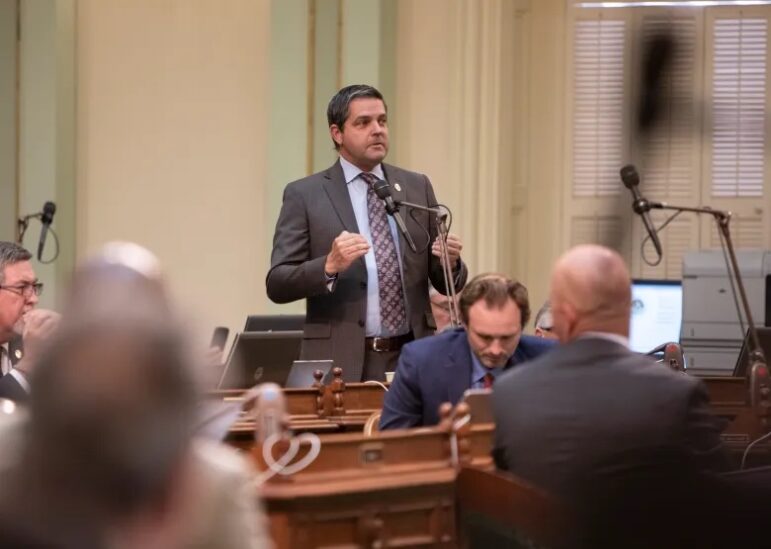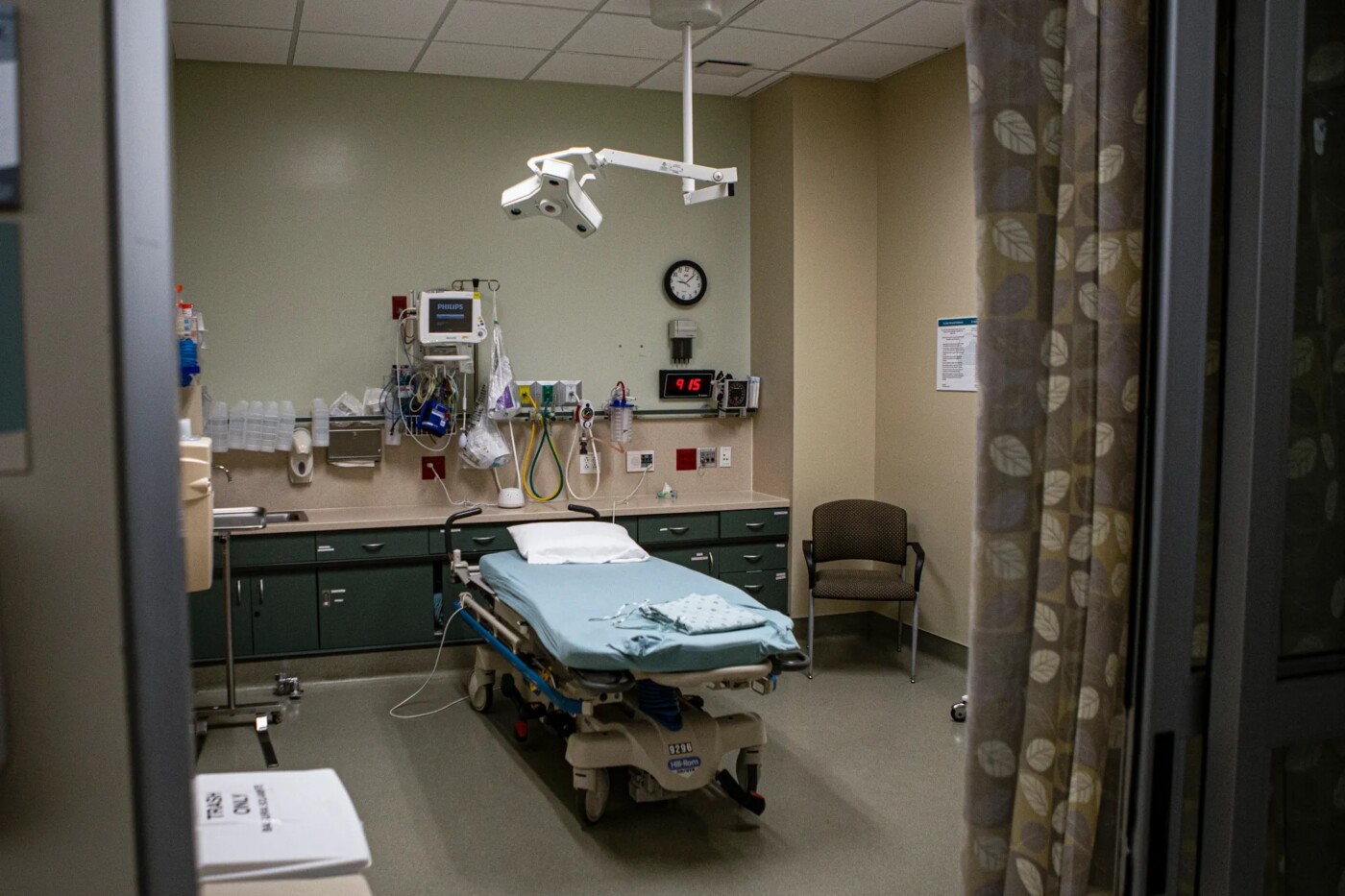The most influential players in the health industry are fighting over a controversial plan to let the attorney general block hedge funds and private equity firms from acquiring health care facilities.
The Legislature’s analysis of the bill says “private equity acquisitions in health care have exploded” and studies show that the trend results “in higher health care costs, poor quality and less access to care.”
“We believe that the health care system should serve patients,” Attorney General Rob Bonta said when the bill was introduced in February. “Too often, private equity has served corporate profiteers by maximizing their profits at the expense of access, quality, and affordability of health care for Californians.”
The battle involves some of the heaviest hitters in the state’s big-money political influence game.
In one corner: Hospitals, the California Chamber of Commerce and private equity investment firms. Joining Bonta in the other are groups representing hospital workers at every level: The state’s physicians’ association, nurses and public employee unions.
Combined, the groups and their affiliates have given more $4 million to sitting legislators’ reelection campaigns in the past two years, according to the Digital Democracy database.
Since its introduction in February, the bill has coasted through two Democratic-controlled Assembly committees on party-line votes, but that’s no guarantee it will reach Gov. Gavin Newsom’s desk. Several previous attempts at similar legislation died quietly.
This year’s legislation, Assembly Bill 3129, is authored by Assembly’s second-highest ranking Democrat, Jim Wood. The dentist and former Healdsburg mayor has announced he’s leaving office at the end of this year. Before he leaves, he said he feels it’s important to appoint a watchdog to prevent hedge funds and private equity firms from buying large health care institutions and squeezing them for profits at the expense of patients.
“This is my last year in the Legislature, and I would forever regret not trying to take this one on,” Wood told CalMatters.
Bonta, who is considering a campaign for governor in 2026, is the bill’s sponsor.
The bill faces fierce objections from the California Hospital Association, which has donated at least $42,300 to lawmakers in the past two years.
Rony Berdugo, the association’s lobbyist, told the Assembly Health Committee earlier this month that private investment is sometimes key to saving struggling local health care institutions.
“Access to all financial tools is critical,” he said, “particularly in vulnerable communities where investments are needed.”
Plus, he argued that the bill is redundant to another law that created the recently formed Office of Health Care Affordability. Founded in 2022, the new state agency can block major health care transactions until it completes an analysis of the impacts on the local health care market, Berdugo said.

The powerful California Chamber of Commerce, which has donated at least $229,000 to sitting lawmakers in the past two years, also opposes the bill. The organization warned lawmakers in a letter that the government shouldn’t have the power to “unilaterally determine which private transactions are good or bad.” The chamber warned of a slippery slope if the attorney general is allowed to have so much say over private businesses.
Nationally, from 2013 to 2016, private equity firms acquired 355 physician practices. In the four years that followed, the acquired 578 additional practices, while pouring nearly $1 trillion into nearly 8,000 health care transactions during the past decade, according to the bill’s non-partisan legislative analysis.
Almost all of the consolidations fall below the $101 million threshold that triggers an antitrust review by the Federal Trade Commission and the U.S. Justice Department, the analysis said.
The bill is supported “in concept” by the California Medical Association, a lobbying powerhouse that represents the state’s physicians. Other doctors groups in support include the American Academy of Emergency Medicine, California Physicians Alliance and the California State Association of Psychiatrists. Unions representing nurses, teachers and public employees also support the bill. Combined, the groups have donated more than $3 million to Democratic lawmakers the past two years.
The bill also has the support of Health Access California, an influential health care consumer advocacy group that advocates for universal health care. The group’s lobbyist, Katelin Van Deyzne, told the Assembly Health Committee that California attorneys general have had the authority to place restrictions on the mergers of nonprofit health care institutions for decades. Why not extend that oversight over private equity firms and hedge funds, she asked?
“What kind of conditions have AGs asked for?” she asked the committee. “To keep emergency rooms open; to keep labor and delivery rooms open; to keep cardiac care and other services open; to not hike up prices for consumers and to not end managed care contracts for consumers for Medi-Cal and to not close hospitals. These are the exact kind of conditions that communities need.”
The argument resonated with the health committee’s chair, Assemblymember Mia Bonta, the wife of Attorney General Bonta, who’s been criticized for not recusing herself in votes relating to her husband’s agency.
“I believe that it is well-situated to ensure that the Department of Justice has the ability to remark on these kinds of acquisitions, given their prior experience doing so in the nonprofit context,” Bonta said, before voting “yes” with the 11 other Democrats on her committee.
Despite the bill advancing as far as it has and having the support of influential groups, Thad Kousser, a political science professor at UC San Diego, said that’s no guarantee the bill will end up making its way through the Democratic-controlled Legislature.
In fact, he predicts the legislation quietly dies without Democratic lawmakers attaching their names to a “no” vote, given the powerful business interests opposing the bill.
“You’re going to make as many enemies as friends when you vote on this bill, so the thing you’d love to see is for it to quietly go away,” he said. “You would like to see this bill die a quiet death without anyone having to cast a vote on it.”
Wood previously authored bills similar to the one under discussion, one in 2022 and another 2021, that both died through inaction. The most recent one died because it couldn’t get a hearing in the Senate Health Committee after passing the Assembly. The older bill died after it was changed into unrelated legislation.
In 2020, similar legislation by former Assemblymember Ed Monning, a Democrat from Carmel, also died after it wasn’t taken up by the full Assembly.
This year, Wood said, “I’m still giving it a chance to get it done.”
Thomas Gerrity, data scientist and product manager for Digital Democracy, contributed to this story.
